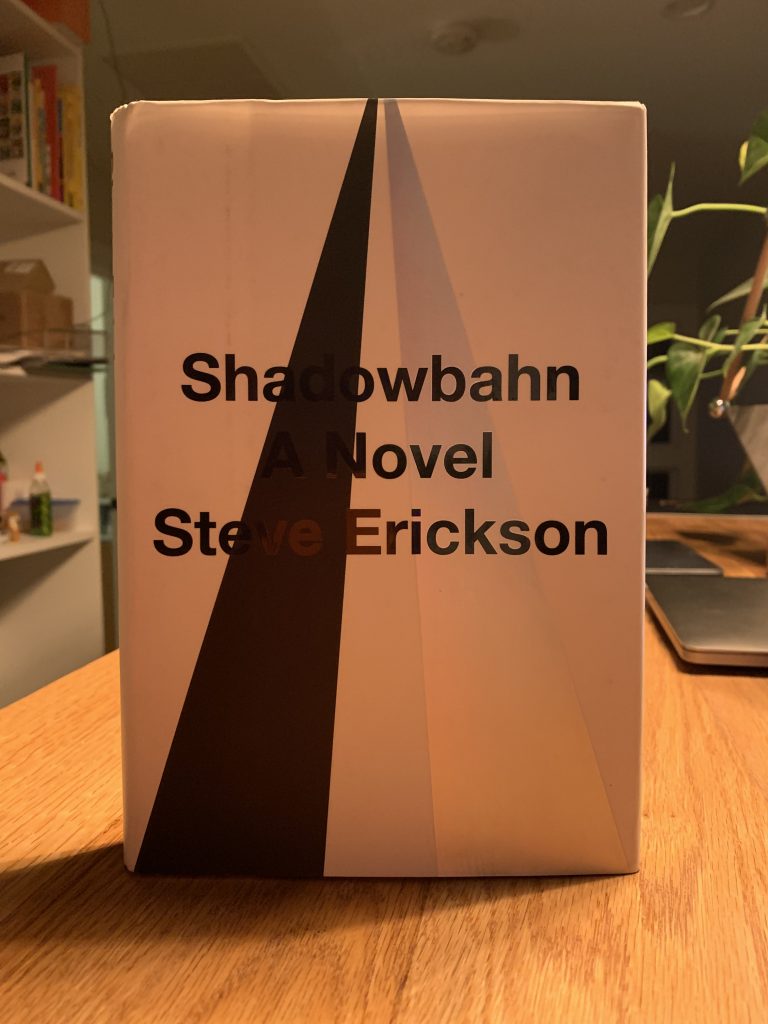I'm not sure where this book came from. I feel like it appeared on my shelf out of thin air. Which is highly relevant because it is a book about the Twin Towers reappearing out of thin air 20 years after their fall...in South Dakota. It's also a book about alternative futures. And America: what is good and bad about it. And music.
The music of America.
Music is the uniting theme.
We explore a different world where popular music - and history - unfolded differently. A brother and sister traverse America, listening to their dad's playlist. The Great Sequencer reveals his songs only to have them vanish.

I still don't understand what I read. Each page was a chapter until they weren't. Things made sense until they didn't. But the prose was lucid and I couldn't stop turning the page. And all through it, the music was the uniting thread.
In fact, looking back, I'm not sure it's meant to make sense; I think Steve Erickson was wrestling with the very dark place this country was going in 2017.
What I couldn't ignore was the music. Chapters are dedicated to explaining different songs in the dad's playlist; both why they are important and why they have been paired. If you want to listen, I built the playlist in Apple Music.
I also built another playlist when the Great Sequencer revealed a substantial portion of his favorite songs (I guessed the artists for some songs; let me know if there are canonical versions of each song). I can't stop listening to it. The music crosses genres and histories but still feels united.
And what unites it is America. Erickson is trying to find songs that represent America and its essence across the decades. Here are examples across the last century:
In fact, it's only recent history post-2010 where Erickson can't find a song. It feels like after the herculean effort of categorizing the American genre he has just run out of steam (fortunately, the book does not). However, one song he keeps returning to (even speculating on an unrecorded version by Elvis) is Oh Shenandoah. This song echoes throughout the book.
(Fun fact: Elvis never recorded it; instead it inspired Tender Feeling)
If you love American music, take a moment to read this book.